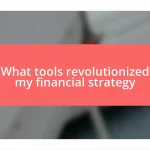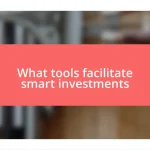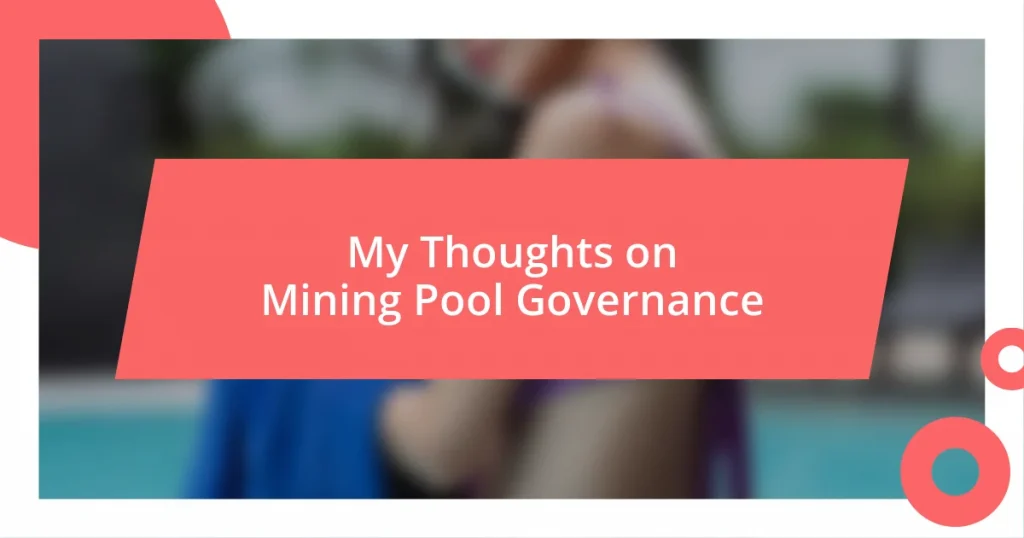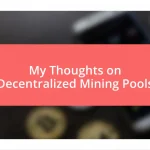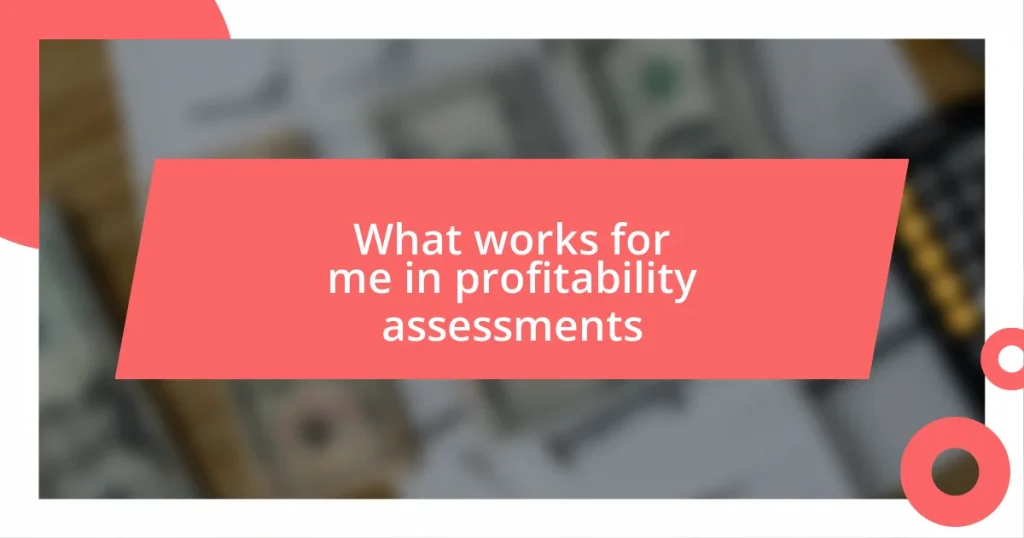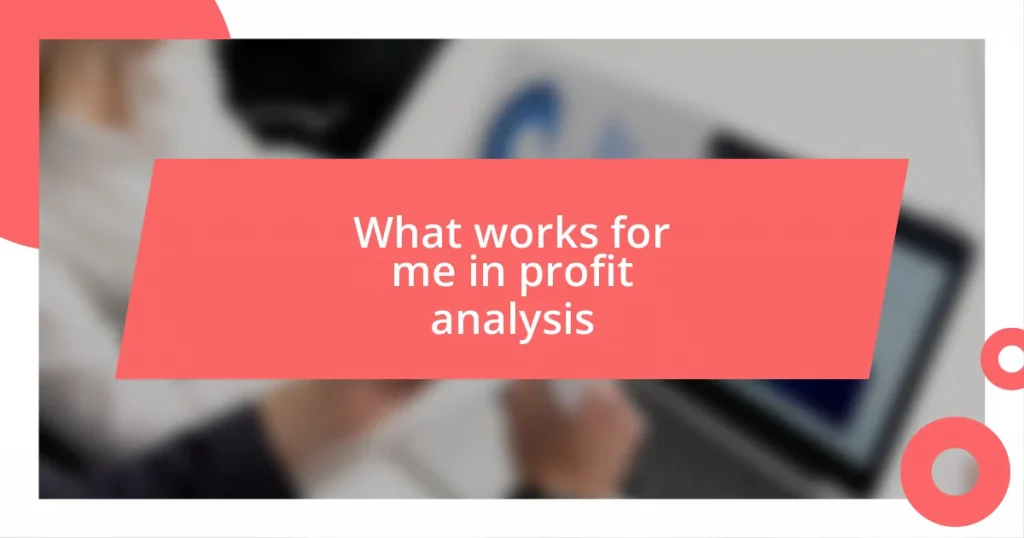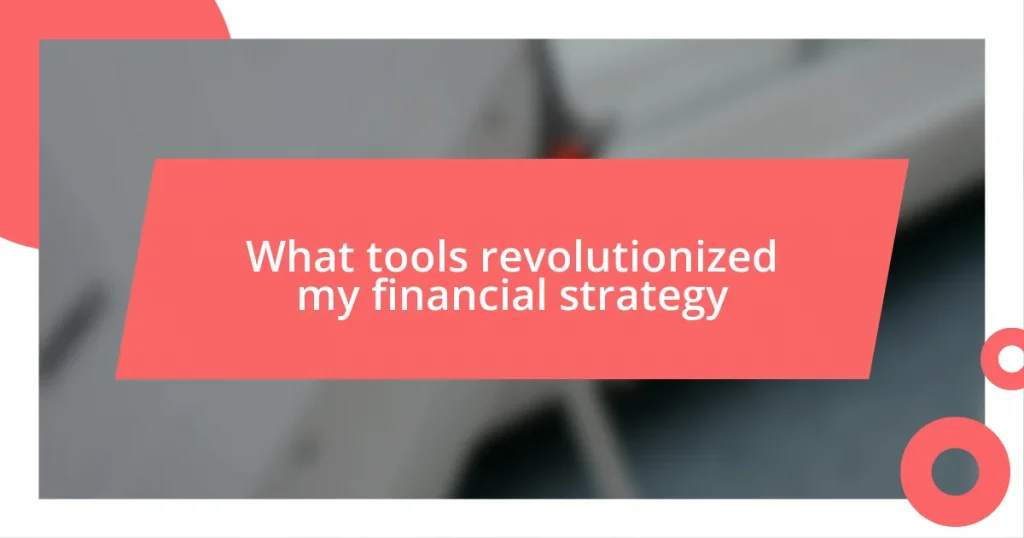Key takeaways:
- The governance of mining pools often combines democratic voting and core developer oversight, impacting community trust and decision-making effectiveness.
- Decentralization enhances fairness, security, and innovation, fostering strong community engagement in decisions like hardware upgrades and fee structures.
- Future trends in mining pool governance include increased decentralization, use of smart contracts for transparency, and heightened community engagement through digital platforms.
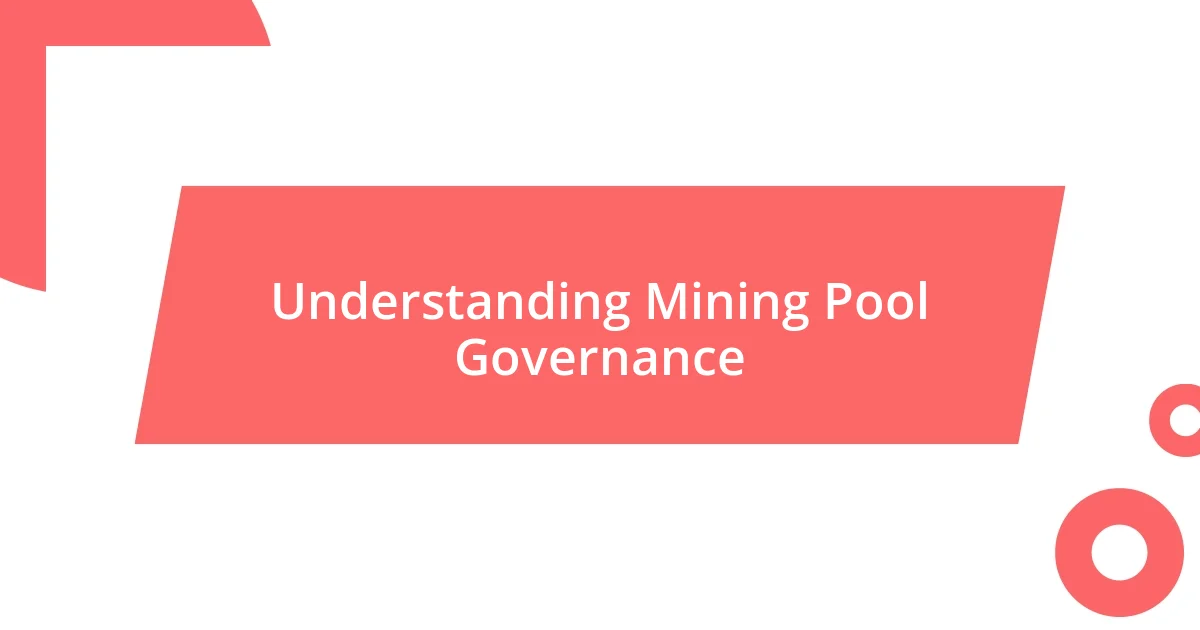
Understanding Mining Pool Governance
Mining pool governance can be quite intricate, and I’ve found that understanding its dynamics is essential for any participant. In essence, governance refers to how decisions are made about the operations and management of mining pools. It’s fascinating to think about how collective decision-making shapes the mining landscape; have you ever wondered how a group of miners can agree on critical changes?
From my experience, the governance structure often reflects a blend of democratic and oligarchic elements. Some pools implement voting systems where members can propose changes, while others may have a core group of developers making most decisions. This balance can evoke strong feelings—when you feel your voice is heard, there’s a sense of community, but when decisions seem unchecked, frustration can arise.
I remember a time when a significant change in a mining pool’s fee structure was introduced without much input from members. The backlash was immediate and intense, highlighting how essential transparent governance is. When miners don’t feel involved, it can lead to a loss of trust, ultimately impacting the pool’s effectiveness and longevity. Isn’t it crucial for everyone to have a stake in the decisions that affect them directly?
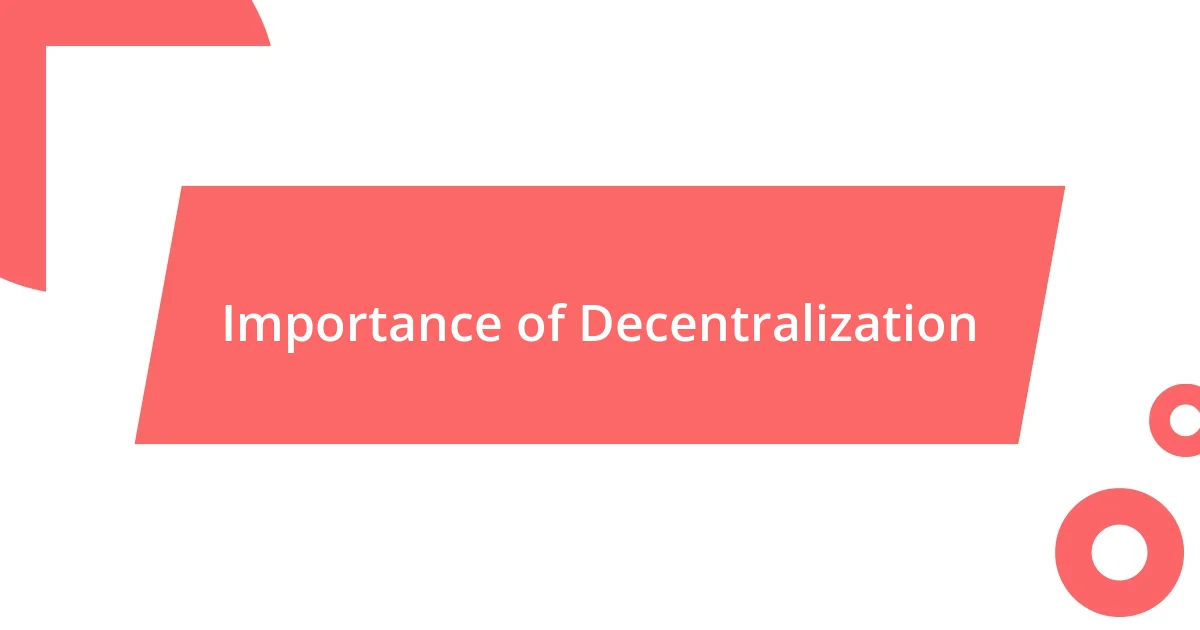
Importance of Decentralization
Decentralization in mining pools is crucial for maintaining fairness and transparency. When no single entity controls the process, miners feel more empowered, which builds trust within the community. I’ve seen firsthand how a decentralized approach facilitates open dialogue among members, ensuring that all voices are heard in decision-making.
- Promotes equitable distribution of power, preventing monopolies within the pool
- Enhances security by reducing the risks associated with single points of failure
- Encourages innovation through diverse viewpoints and ideas, leading to improved solutions
- Strengthens community ties, as members actively participate and share in governance
- Fosters blockchain’s core principles of transparency and trustlessness, enhancing overall trust in the system
I recall an instance where our mining pool faced crucial decisions about upgrading hardware. Instead of relying solely on a few developers, we held a series of community meetings. The collaborative spirit not only generated creative solutions but also left each member feeling invested in the outcomes. There’s something deeply satisfying in knowing that every miner’s input contributes to the pool’s future.
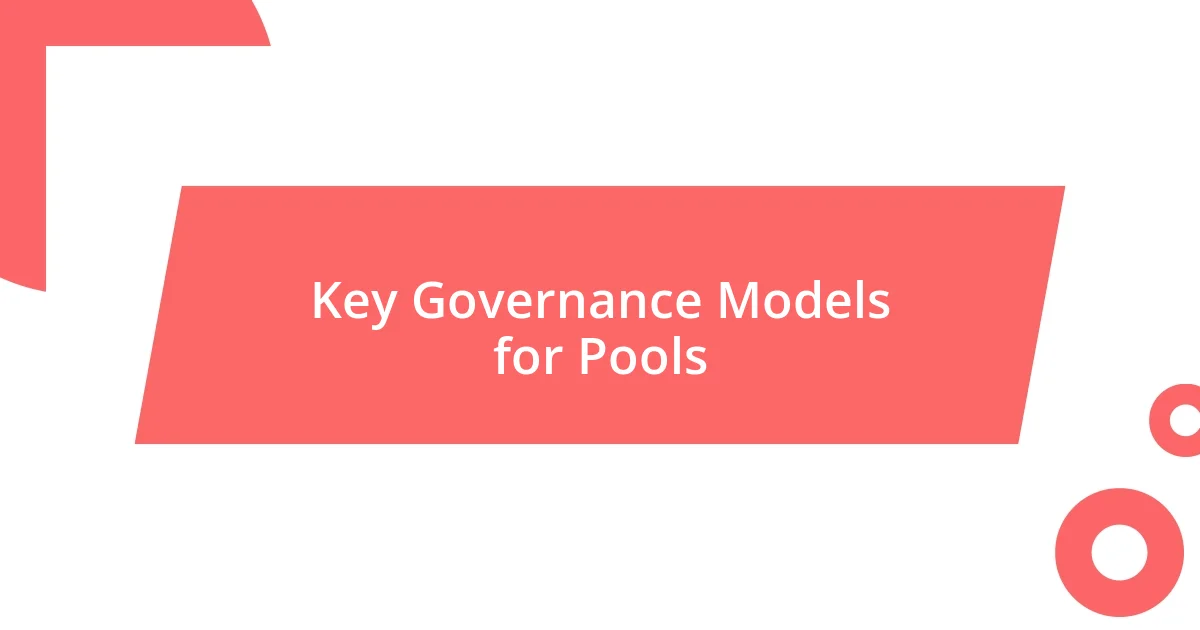
Key Governance Models for Pools
The governance models for mining pools can vary widely, each with its pros and cons. One common approach is the “one member, one vote” model, which ideally ensures that all miners have an equal say in decisions. However, from my experience, this can sometimes lead to indecision or conflict, especially if there are diverging interests within the community. On the other hand, there are pools that adopt a leader-based model, where a select few make decisions on behalf of the entire group. This can create efficiency but may alienate those who feel left out of the decision-making process.
I’ve observed that a hybrid model is increasingly popular, combining elements of both democratic and oligarchic systems. In these setups, community voting can be used for certain issues, while a trusted group manages operational decisions. This model often strikes a balance between efficient governance and community engagement. I remember a time when my pool switched to this hybrid approach; it felt empowering to vote on key issues while knowing experienced members were guiding the day-to-day operations.
Interestingly, many pools are now exploring decentralized autonomous organizations (DAOs) as a governance model. With smart contracts enabling automatic execution of decisions, DAOs can potentially enhance transparency and accountability. I’ve seen the excitement surrounding this shift; the idea that technology can empower every member to play an active role in governance is thrilling. It brings to mind a moment when our pool considered adopting a simple voting platform, and the enthusiasm generated from that idea reminded me of the positive energy that arises when everyone feels included in the process.
| Governance Model | Description |
|---|---|
| One Member, One Vote | Equal voting rights for all members, promoting democracy but can cause indecision. |
| Leader-Based | A few selected individuals make decisions, leading to greater efficiency but potentially alienating others. |
| Hybrid Model | Combines community voting on key issues with operational management by trusted members. |
| Decentralized Autonomous Organization (DAO) | Utilizes smart contracts for automatic decision-making, enhancing transparency and participation. |
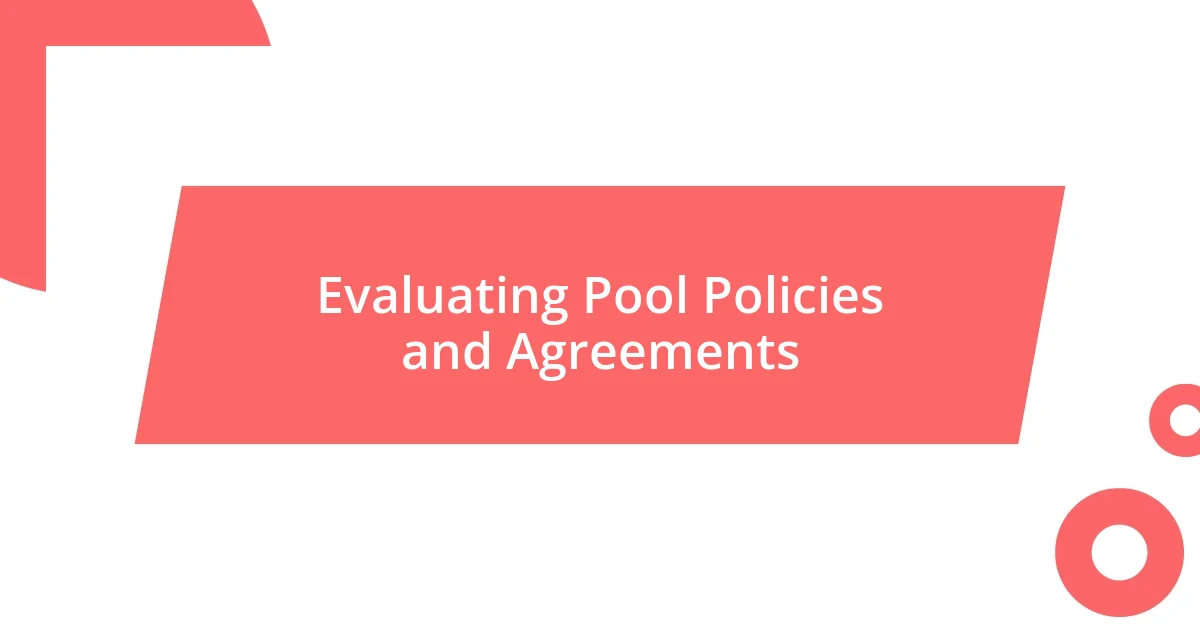
Evaluating Pool Policies and Agreements
Pool policies and agreements often shape the overall experience for miners. I remember a time when our mining pool revised its payout structure; the transparency of the discussion was critical. By clearly outlining the new terms and encouraging feedback, it fostered trust. Have you ever reconsidered how your pool’s payout system affects morale? In my case, the clarity turned a potentially contentious change into an opportunity for collective learning.
When evaluating policies, it’s essential to consider how they align with the values of decentralization. I once participated in a pool that implemented voting mechanisms for policy changes. It was fascinating to see everyone actively engaged, debating the nuances of each proposal. This not only made us feel like partners in the pool’s future but also highlighted the importance of collaboration. Wouldn’t it be wonderful if all pools encouraged such involvement?
Lastly, the effectiveness of policies can often hinge on their flexibility. I’ve seen pools that rigidly enforce rules, which can sometimes stifle innovation. Our own pool adopted a progressive approach that allowed for periodic reviews of our agreements. Adjusting based on member feedback ensured that the policies remained relevant. How often do you think your pool evaluates its agreements? From my perspective, a willingness to adapt can significantly enhance both community spirit and operational success.
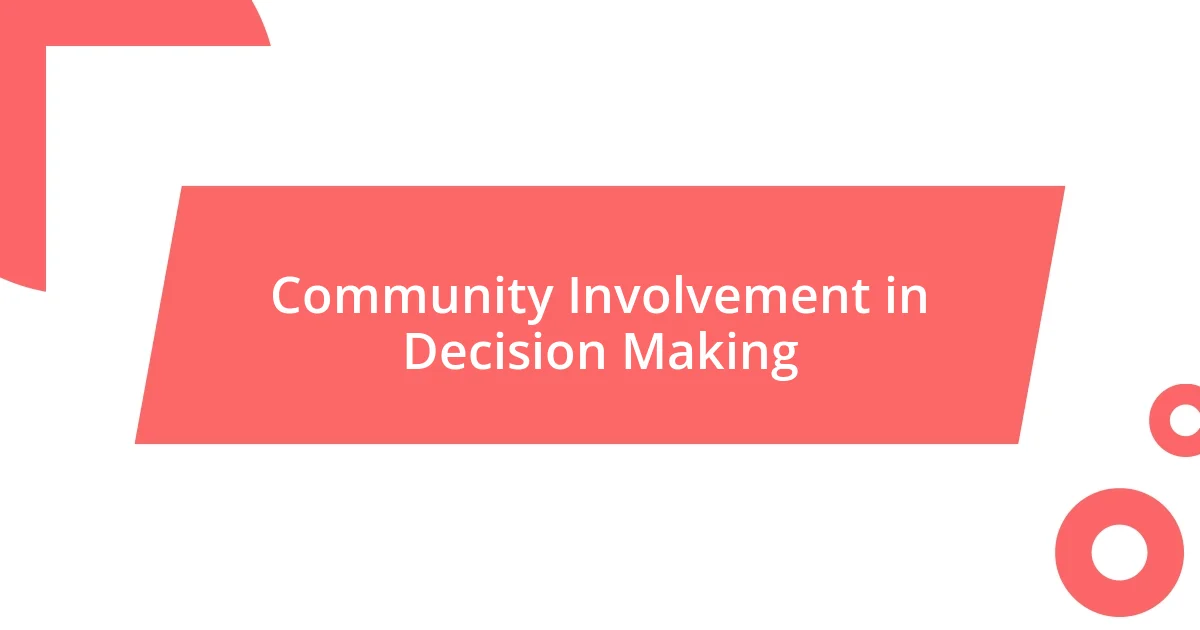
Community Involvement in Decision Making
Community involvement in decision-making is a cornerstone of effective governance in mining pools. I recall a time when I was part of a crucial decision regarding new mining hardware investments. The discussion was vibrant, with members sharing valuable insights and concerns about the proposed equipment. It was incredibly affirming to see diverse perspectives come together, highlighting how collective input can lead to better outcomes.
I’ve often wondered how many pools truly harness the power of their community. In one instance, during a proposal to change our fee structure, our pool implemented a survey to gauge opinions. The process not only made me feel valued as a contributor, but it also revealed insights that we, as a group, had not considered. It confirmed for me that when decisions reflect the community’s voice, everyone feels more invested in the outcomes. Isn’t it fascinating how a simple survey can spark such an engaging dialogue?
Moreover, I’ve noticed that regular community forums can work wonders for fostering transparency and trust. In a past pool experience, we held monthly meetings where we discussed ongoing projects and gathered feedback. Those gatherings not only deepened relationships among members but also incorporated their thoughts into the strategic direction of the pool. It’s a reminder that when people see their opinions and ideas in action, it generates excitement and commitment. Do you think your mining pool could benefit from such openness? I certainly believe that it can transform the dynamic, making everyone a vital part of the decision-making process.
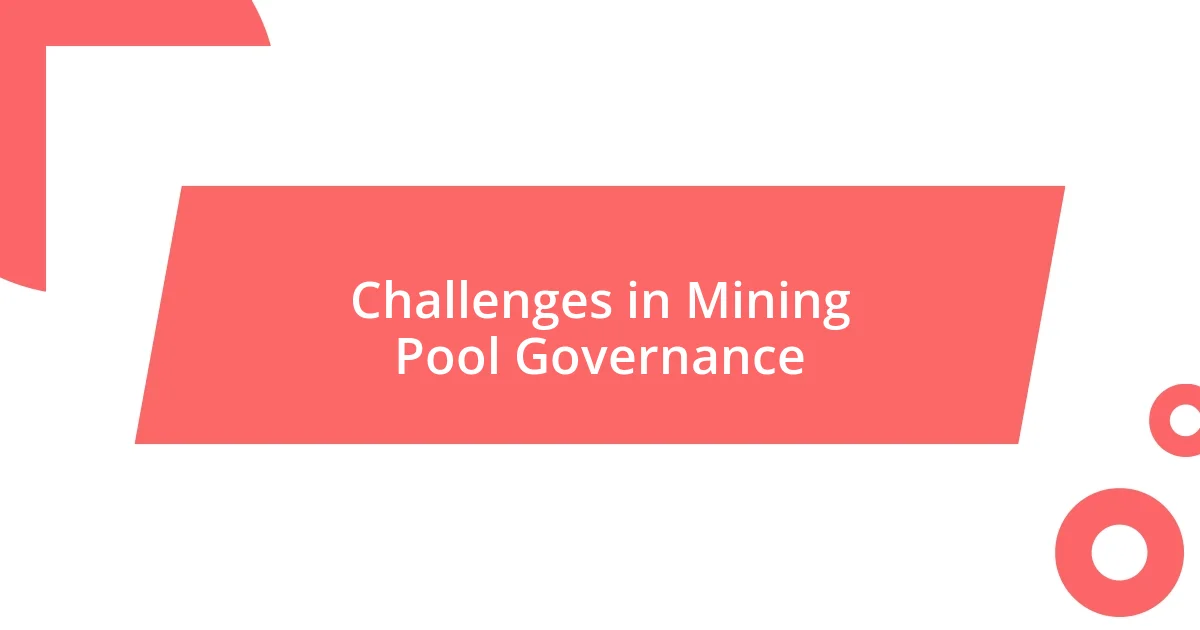
Challenges in Mining Pool Governance
Governance in mining pools faces several challenges that can impact productivity and community trust. One significant issue is the often unequal distribution of power among members. I’ve observed pools where a few decision-makers dominated discussions, leaving many in the dark. This lack of inclusivity can lead to frustration; when I was in such a situation, it threw me off balance. Have you ever felt sidelined when important choices were made without your input? I certainly have, and it made me reconsider my commitment to the pool.
Another challenge revolves around the flow of information. I recall a time when changes were implemented without adequate communication, which resulted in confusion and dissent. A fellow miner expressed his frustrations upfront, saying he felt like a cog in a machine, rather than a valued contributor. This reinforces how essential transparent communication is; without it, it’s easy for misunderstandings to escalate. Do your pool’s leaders keep you informed? When they don’t, what might happen to the morale of the community?
Finally, balancing the needs of a diverse community can be daunting. I remember a particularly vibrant discussion about whether to lower fees or invest in better infrastructure. The voices of newer members felt drowned out by the more experienced miners, which led to a sense of division. It dawned on me then how vital it is for governance structures to be adaptable and sensitive to the evolving needs of all participants. How can we ensure that everyone’s voice is heard? It’s a question worth pondering as we navigate the complexities of mining pool governance together.
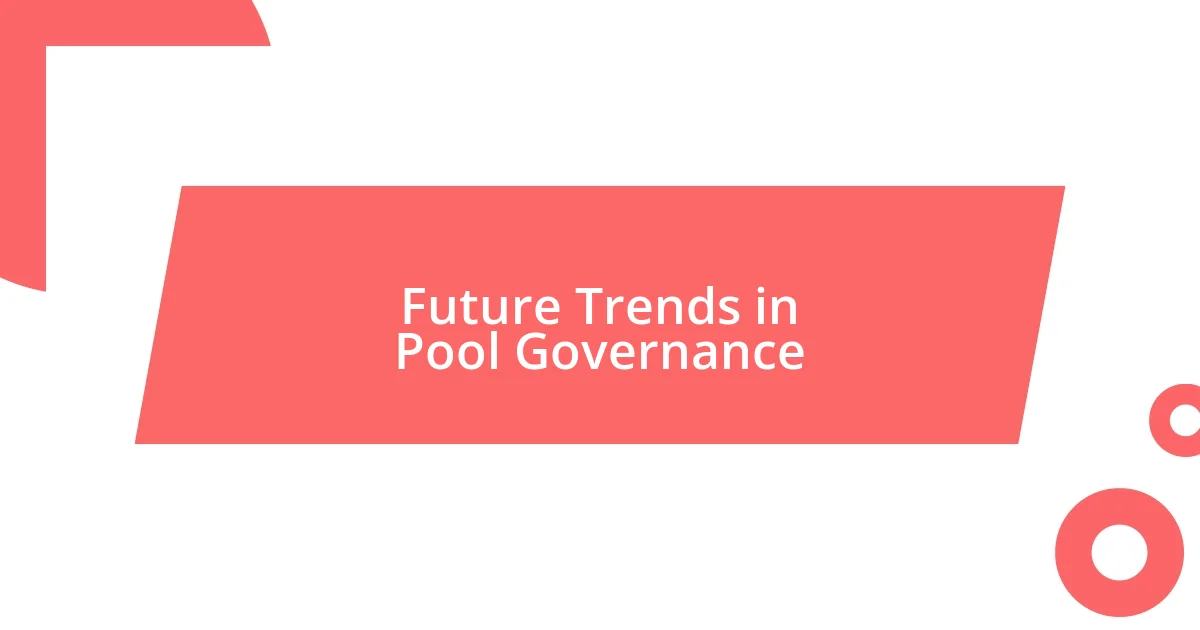
Future Trends in Pool Governance
As I look towards the future of mining pool governance, I can’t help but think about the potential for more decentralized approaches. In an era where decentralization is increasingly revered, I envision pools adopting more democratic decision-making processes. For instance, I recall a discussion about implementing a voting system that allowed everyone to weigh in on significant changes. The excitement was palpable, as we could see a tangible shift towards inclusion, reinforcing the idea that every miner matters in shaping our future.
Interestingly, advancements in technology could revolutionize pool governance as well. I recently attended a seminar on blockchain applications in governance, which sparked ideas around smart contracts for proposals. I remember being fascinated by the concept of automating decisions based on member votes in an entirely transparent manner. Wouldn’t it be powerful to have members’ trust secured by technology, ensuring that everyone’s voice leads to concrete outcomes? This could instill a much-needed sense of security in the decision-making realm.
Additionally, the trend of increasing community engagement is something I’m optimistic about. I’ve seen first-hand how social media and platforms for live discussions can strengthen bonds among miners. I recall joining a Twitter Space where we debated fee structures, and it felt like a breath of fresh air to see the conversation unfold in real-time. Could this be the key to bridging gaps between members and fostering a more cohesive community? Engaging chats like these can amplify connections and spark innovative ideas, making the pool governance process feel less bureaucratic and more communal.


